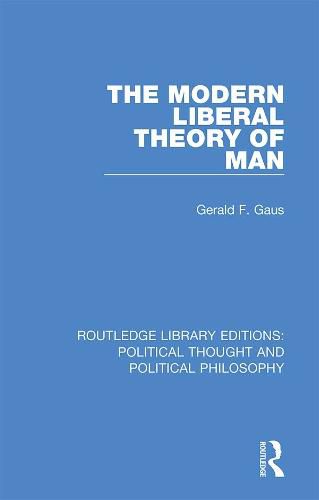Readings Newsletter
Become a Readings Member to make your shopping experience even easier.
Sign in or sign up for free!
You’re not far away from qualifying for FREE standard shipping within Australia
You’ve qualified for FREE standard shipping within Australia
The cart is loading…






First published in 1983. The primary argument of this book is that there is a coherent tradition of liberal thinking that extends from L. S. Mill, through liberals like T. H. Green, Bernard Bosanquet, L. T. Hobhouse and John Dewey to John Rawls. The author places Rawls within a longstanding tradition of liberal thinking, while also arguing that Green and Hobhouse are not simply of historical interest but represent genuine and interesting attempts to develop a modern liberal theory.
It is argued that modern liberal theory centres on a conception of human nature; that modern liberals have sought to harmonise the pursuit of individuality with participation in social and communal life. Although the book focuses on six modern liberals, the discussion proceeds topically rather than according to author, thus highlighting similarities and disagreements and providing a comprehensive study of modern liberalism.
$9.00 standard shipping within Australia
FREE standard shipping within Australia for orders over $100.00
Express & International shipping calculated at checkout
First published in 1983. The primary argument of this book is that there is a coherent tradition of liberal thinking that extends from L. S. Mill, through liberals like T. H. Green, Bernard Bosanquet, L. T. Hobhouse and John Dewey to John Rawls. The author places Rawls within a longstanding tradition of liberal thinking, while also arguing that Green and Hobhouse are not simply of historical interest but represent genuine and interesting attempts to develop a modern liberal theory.
It is argued that modern liberal theory centres on a conception of human nature; that modern liberals have sought to harmonise the pursuit of individuality with participation in social and communal life. Although the book focuses on six modern liberals, the discussion proceeds topically rather than according to author, thus highlighting similarities and disagreements and providing a comprehensive study of modern liberalism.